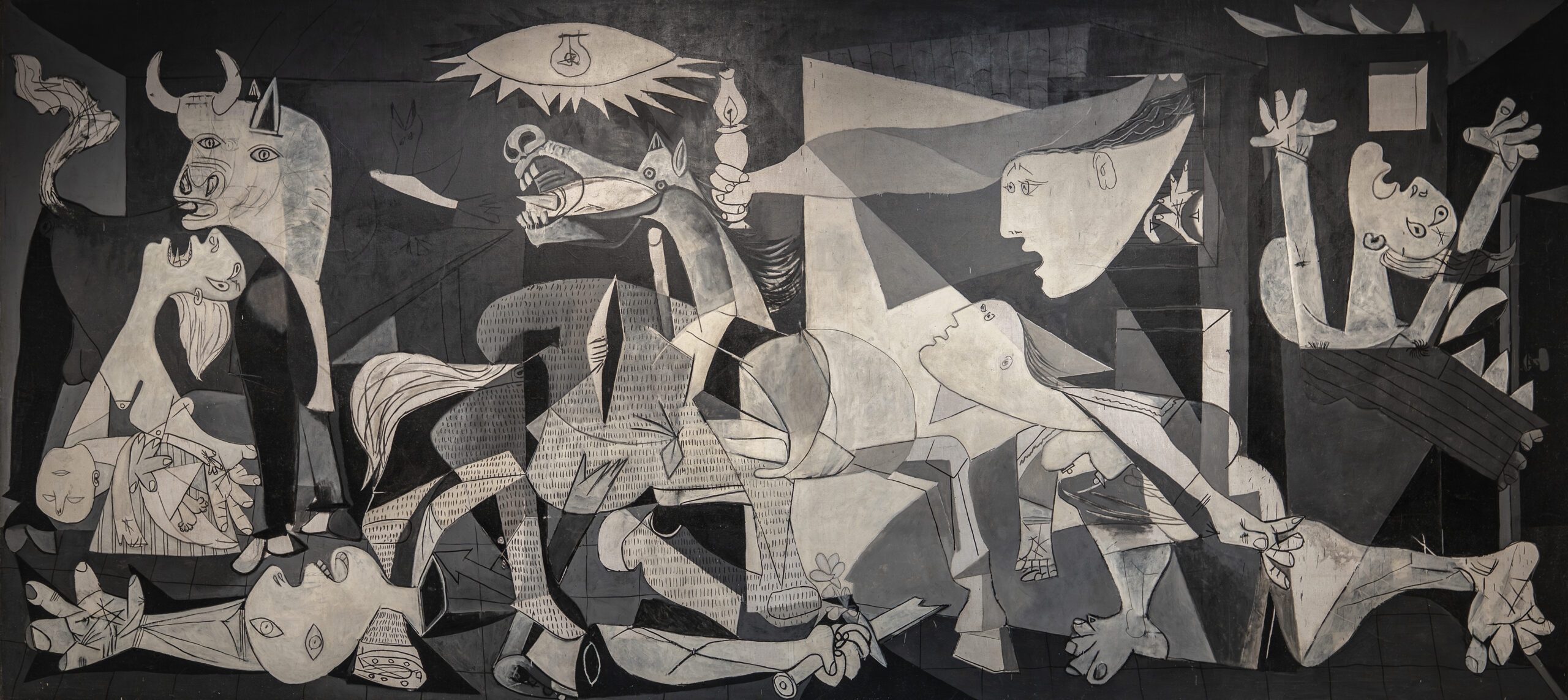By Selim Tlili
Selim Tlili has taught high school biology, chemistry and math since 2004. He began in the NYC public school system and moved to independent education in 2015. He is working on his first book in science education and is finishing his first movie. Read his work at selim.digital.
I had an incredibly interesting lunchtime conversation with my colleagues awhile back that got me thinking. My colleague, a history teacher, was concerned that Generative AI will transform our career.
“What can I do that ChatGPT can’t do better? It can make a curriculum that aligns with the standards, write all the questions, come up with papers… and students can do it at their pace! A kid likes history, she can rush through it. Another kid struggles with it; they can ask the AI to simplify it. At some point all of these kids are gonna be just sitting in front of a screen and me and all the history teachers are gonna just be grading the papers that the AI assigns”.
I don’t want to completely dismiss my colleagues’ concerns, but I do want to explain why I believe that AI is an over-hyped technology that will never completely be embraced by the public for personal use, particularly in the educational space. I believe that the use cases for AI are far more limited than is currently perceived. I also think the general public will shun content made by AI if they are aware of its origin, and that the public will get better at identifying AI-generated content over time.
As a high school teacher, I have spent decades learning what motivates people to master topics that they are obligated to study but are not naturally inclined to learn. Learning how to motivate children has given me significant insight into what incentivizes us to produce–and consume–good work.
Here’s a simple thought experiment that elucidates why people will never come to value Generative AI, no matter how sophisticated it becomes:
You have the option of owning a Picasso, signed and authenticated, for $10,000. Or, for $9,000, you can buy a perfect forgery. Nobody will ever know it is fake except for you and those who sold it. Which one will you purchase?

The purely rational answer would be to choose the perfect forgery. You are getting all the value of the original and paying less for a copy. Yet most people will not purchase the forgery. You will know that it is fake, so you will not value it like the real thing.
What is it that you are seeking when you purchase an original Picasso or any original artwork? You aren’t purchasing viewing access, since you could look up any image online and see it for free. You are seeking to own a piece of the artist’s genius and creativity.
What we are pursuing when we purchase art is proximity to greatness. It’s why we pay extravagantly for live concert tickets to hear an aging performer who can’t play nearly as well as he could when he was in his mid-20s. It’s why millions of people fly to Paris and wait hours in line to see the Mona Lisa, even though you can look at it online for free. It’s why people will spend more than $10,000 to buy a Rolex that doesn’t tell time as accurately as a $20 Casio watch.
When we create something by hand, a part of our soul enters the work. We do not imbue digital technology with that same gift; this is why you might pass your Omega watch down to your child but not your Apple Watch – it won’t have the same feeling of spirit. Our minds, bodies, and souls know that there is no creative spirit in even the best coded digital product, and for all the technical language involved, generative AI ultimately creates mass scale approximations of human work. An AI generated image might be technically competent, but it doesn’t move you the way a work of art can move you. It can’t move you because we aren’t moved by the technical creation of art, we are moved by our sense of connection to the artist that made the work. We don’t feel connected to the Large Language Model that made the digital image but we do feel connected to the seven year old that drew something and shared it with you.
The reason I am so confident that generative AI will never become a meaningful part of the human experience is because we inherently seek out human connections and will shun anything that feels like it is trying to pretend to be an authentic human experience.
This isn’t to say that AI is completely useless. There is likely value in using AI for both summarizing large amounts of information and for non-human facing purposes. Summarizing large volumes of work, editing video and other noncommunicative work that we need, will probably be helped significantly. In other words, AI can help a creative person in their own creative generation process, but AI is unable to iterate and improve its own work without the feedback from a human being.
This process of being able to improve your work is something that AI is unlikely to resolve in the future. While human beings learn from one another and can improve our work through learning from other people, AI models are unable to do so. I have written multiple drafts of this essay and it has improved significantly since I wrote the first draft. It has improved even more when I have gotten feedback from subject matter experts. An AI model could write the first draft of this essay but it cannot use its own work to improve what it wrote.
As a matter of fact, Studies indicate that when AI models learn from other large language models there create compounding errors. In other words they cannot use their own generative data to improve themselves.
AI-generated art might impress us technically, and people will use it to make free drawings that can enhance their writing, but there will never be a market for AI art, as the immediate bubble bursting of NFTs have shown us. We will not go to theaters to watch movies (assuming that a large language model could somehow ever generate a 90-minute movie in 4k and be economically competitive with making a movie the old fashioned way) or read books made by AI because we want to be moved by a human perspective. YouTube videos with an AI voice are usually skipped. It is unlikely that any book written by AI will become a literary classic. While the technology will advance it seems unlikely to be able to compete economically, technologically or qualitatively with the natural creative impulse. Listen to an audiobook spoken by AI; you will get a clearly articulated book that is understandable… and that is it. There will be no emotional quirks in the voice. nuances, tones or any of the little details that we have evolved to pick up on when we listen to someone speak.
We are poor predictors of the future. We consistently assume that technology will massively change society sometime in “the next five years.” In 2000 we were promised an age of personalized medicine after we sequenced the first human genome back in 2000. 2012 promised us the end of cancer thanks to the Watson supercomputer and the era of “big data.” Our consistent failure to predict how technology will advance our society has not stopped us from making these overly optimistic projections.
Maybe the human condition is such that we want there to be an external solution to problems because then we do not have to rely upon the cultivation of what is inside of us. But our greatest potential for solving life’s problems has always been, and will always be, cultivating the natural talents that are inherent to us and can be developed with time, care and attention.
I was worried at one point that my students would just use ChatGPT to do their work and thinking for them. So far that hasn’t happened. Yes, some students have used it, and it is obvious, and they have been penalized appropriately. The reason I am confident that I will be able to tell when students have used it is because I can compare how well they articulate their thoughts in class versus in a paper. The few times I have ever been unsure I have resolved by asking students to sit down and explain the ideas they expressed in their paper. They have universally been unable to do so and have been dealt with appropriately. The reason why I am confident that we will always be able to detect the cheating despite the improvements in the technology is all about the unchanging nature of the human condition. If kids get help writing a paper then when they get asked to discuss their ideas they will not be able to do so. This is not a technology issue for me, this is a human condition issue.
Fortunately most students are doing their own work. I believe that because I try my best to offer work that speaks to students’ curiosity and creative needs that they won’t want to use AI to do the work for them. Worthwhile work will not be something that people will want to hand off to AI. Meaningful work doesn’t get pawned off to ChatGPT.
Human beings are motivated by lots of things but what motivates humans the most uniquely is the impulse to create. All life seeks to survive and reproduce but as far as I am aware we are one of the few species that has an impulse to creativity. Technology that tries to tell us that we should outsource our creative spark to a computer will fail to achieve the change that the hype suggests.

